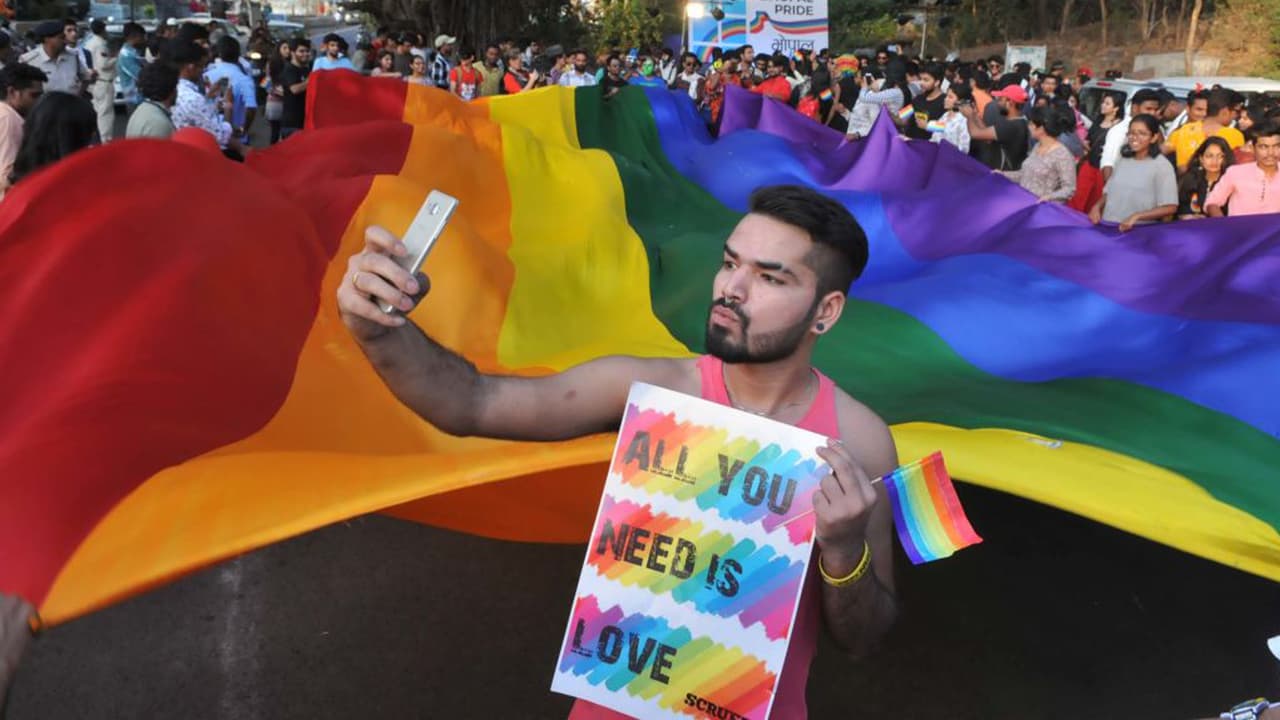On Tuesday, the Centre sought more time to file its response to the proposition of repealing Section 377 that deals with sexual acts “against the order of nature”. The SC refused to adjourn the hearing. The apex court decided to hear the plea after an IIT LGBT alumni associate filed it in May this year
On Tuesday, the Centre sought more time to file its response to the proposition of repealing Section 377 that deals with sexual acts “against the order of nature”. The SC refused to adjourn the hearing. The apex court decided to hear the plea after an IIT LGBT alumni associate filed it in May this year
A petition was filed by 32 individuals to repeal the Section 377 of the Indian Penal code (IPC), which criminalises homosexuality.
In Dec 2013, the SC had overturned a judgment of Delhi High court that decriminalised homosexuality. And thus, upheld the criminalisation of LGBTQ (Lesbian, Gay, Bisexual, Transgender, and Queer) communities.
The Supreme Court will commence hearing the petitions on revoking Section 377 of the IPC on Tuesday. A five-judge constitution bench headed by Chief Justice Dipak Misra will be hearing the petitions challenging Section 377. The bench will also consist Justice RF Nariman, Justice AM Khanwilkar, Justice DY Chandrachud, and Justice Indu Malhotra.
For now, Section 377, which criminalises anal and oral sex, calls it ‘against the order of nature with any man, woman or animal’, punishes with life imprisonment or a jail term that may extend to 10 years.
Recently, Indian Psychiatric Society had also officially declared that homosexuality is ‘a sexual variation’ & not a ‘mental illness’.
The Centre had filed a petition to postpone the hearing of petitions filed by Naz foundation and many others and also requested four more weeks to file its response in the matter. However, the apex court on Monday refused to delay the hearing. Thus, the court will go ahead with the scheduled hearing on July 10. “The Centre can file whatever it wants during the hearing”, the bench said.
During the first half of the hearing, former AG Mukul Rohatgi passionately argued saying, " Do not restrict it to Section 377, further directions are needed for protection of my life, property". To which Chief Justice Dipak Misra had to correct him saying, "First let us get out of this mess of Naz Foundation/ Kaushal"..The bench took a break for lunch and again resumed hearing at 2pm.
Putting up a fight senior advocate Arvind Datar argued that Code of 1860 was forced on India and it even the British Parliament did not endorse it. He further argued, "The objective of the penal code is to identify an offence and punish for the same so that it acts as a deterrent. But when it is a natural orientation, then how can it be an offence?" in his endeavour to make a case to decriminalise homosexuality.
History
Section 377 of the Indian Penal Code (IPC) was introduced by the British in the 19th century. While India is still smarting from the colonial hangover, the British themselves repealed it in the United Kingdom in the late 1960s.
Perspective
While it is largely believed that Section 377 criminalises homosexuality, the term “homosexual” does not figure in the law. It states
Unnatural offences: Whoever voluntarily has carnal* intercourse against the order of nature with any man, woman or animal shall be punished with imprisonment for life, or with imprisonment of either description for a term which may extend to ten years, and shall also be liable to fine.
Explanation: Penetration is sufficient to constitute the carnal intercourse necessary to the offence described in this section. The Oxford English Dictionary defines “carnal” as “connected with the body or with sex”.
However, that a partner in a heterosexual couple would approach the police with the complaint that his/her spouse indulges in “unnatural” sex is unlikely. In this event, homosexuals become the obvious suspect to the police of the country caught in the time warp of colonial-era Puritanism.
Practically, the issue of utmost concern for homosexuals is the fact that patients from the LGBT community, on revealing their sexual orientation, are denied medical treatment by doctors without a police clearance. The police take undue advantage of this law by blackmailing the patients and extorting bribes from them.
